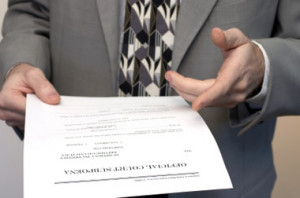How to Serve Court Papers Legally
 Serving court papers is a crucial step in legal proceedings, ensuring that all parties involved are properly notified and given the opportunity to respond. Whether you’re initiating a lawsuit or responding to one, understanding the proper way to serve court papers is essential to uphold the principles of due process. In this post, we’ll guide you through the process of serving court papers legally while highlighting specific rules of civil procedure in North Carolina and South Carolina.
Serving court papers is a crucial step in legal proceedings, ensuring that all parties involved are properly notified and given the opportunity to respond. Whether you’re initiating a lawsuit or responding to one, understanding the proper way to serve court papers is essential to uphold the principles of due process. In this post, we’ll guide you through the process of serving court papers legally while highlighting specific rules of civil procedure in North Carolina and South Carolina.
Understanding the Importance of Proper Service
Proper service of court papers is not just a formality; it’s a constitutional right that guarantees all parties have a fair chance to present their case. Failure to serve court papers correctly can lead to delays, incorrect judgments, and even dismissal of your case. It’s crucial to follow the rules and guidelines of your state’s civil procedure to ensure that your legal actions are valid.
Rules of Civil Procedure
North Carolina
In North Carolina, court papers can be served through various methods:
- Personal Service: This involves physically delivering the papers to the individual named in the lawsuit. Service must be performed by someone other than a party to the case, and typically requires the recipient’s acceptance of the papers.
- Service by Certified Mail: Some documents can be served via certified mail, with a return receipt requested. This method requires the recipient’s signature upon receipt.
- Substitute Service: If personal service is not possible, court papers can be left with a suitable adult at the individual’s residence or place of business.
- Publication: In cases where the defendant’s location is unknown, service by publication in a newspaper may be allowed after obtaining court approval.
South Carolina
In South Carolina, the rules for serving court papers are similar to those in North Carolina:
- Personal Service: Serving court papers directly to the named party is the primary method. It can be done by anyone over 18 who is not a party to the case.
- Service by Certified Mail: Some documents can be sent via certified mail with a return receipt requested. The recipient’s signature serves as proof of service.
- Substitute Service: If personal service is not feasible, court papers can be left with a responsible individual at the recipient’s residence or place of business.
- Publication: In some cases, service by publication in a newspaper is allowed after court approval if the defendant’s whereabouts are unknown.
Seek Professional Assistance
Navigating the rules of civil procedure can be complex, and any mistakes in serving court papers can have serious consequences. If you’re unsure about the proper way to serve court papers, consider seeking assistance from a professional process service agency. At Accurate Serve of Charlotte, we specialize in legally serving court papers in accordance with the rules of civil procedure in North Carolina and South Carolina. Our experienced team ensures that the process is executed correctly, protecting your rights and maintaining the integrity of your case.
For help with proper and legal service of court papers, give us a call at (704) 858-2952 or submit your work requests online. If you’re not in the Charlotte area, visit theaccurateservefranchise.com to find the office closest to you.
